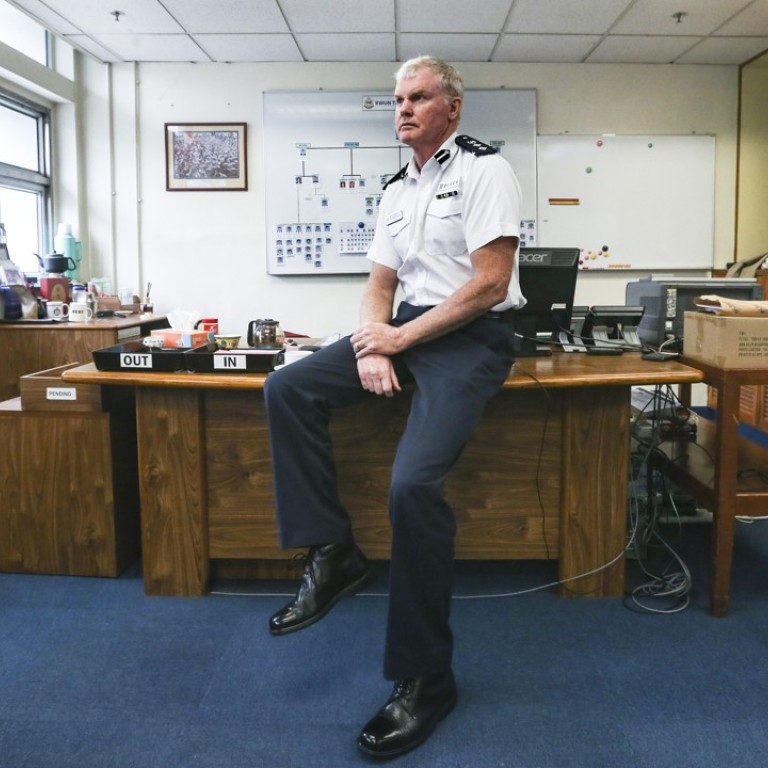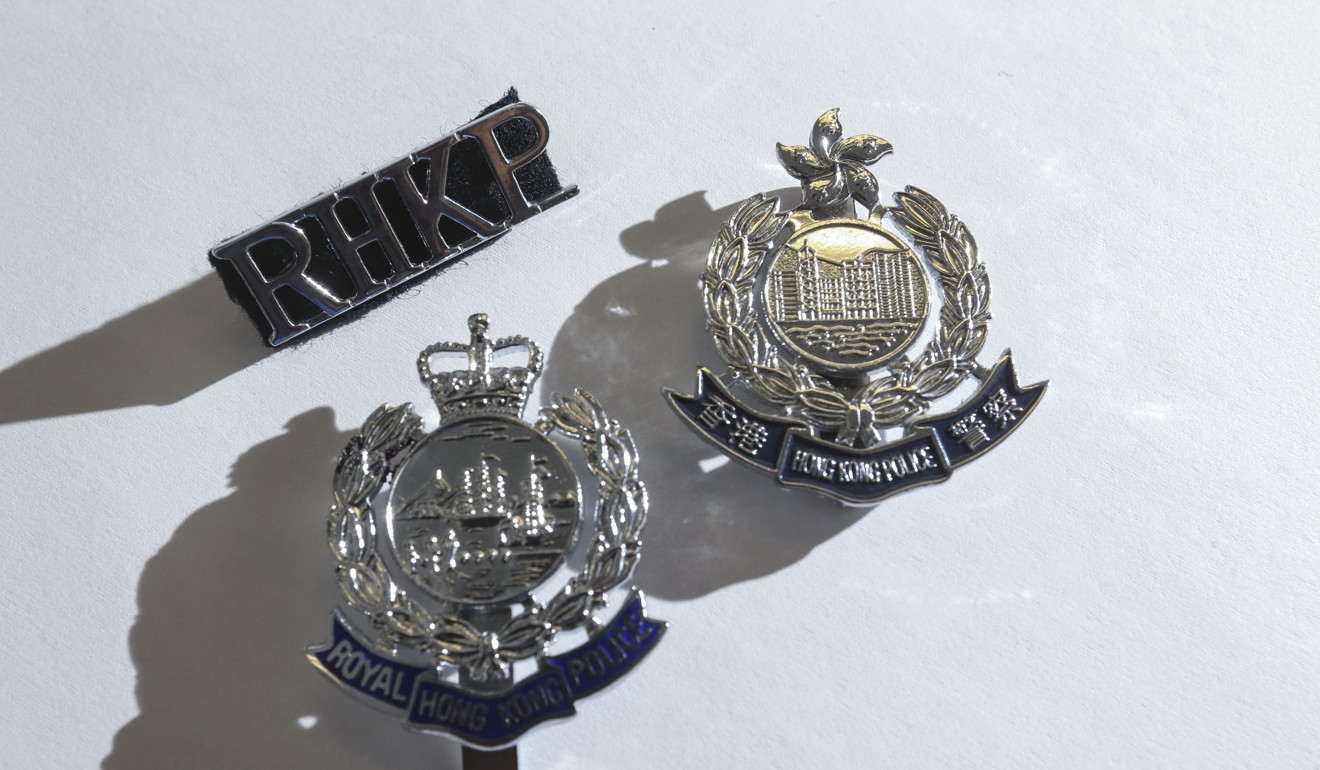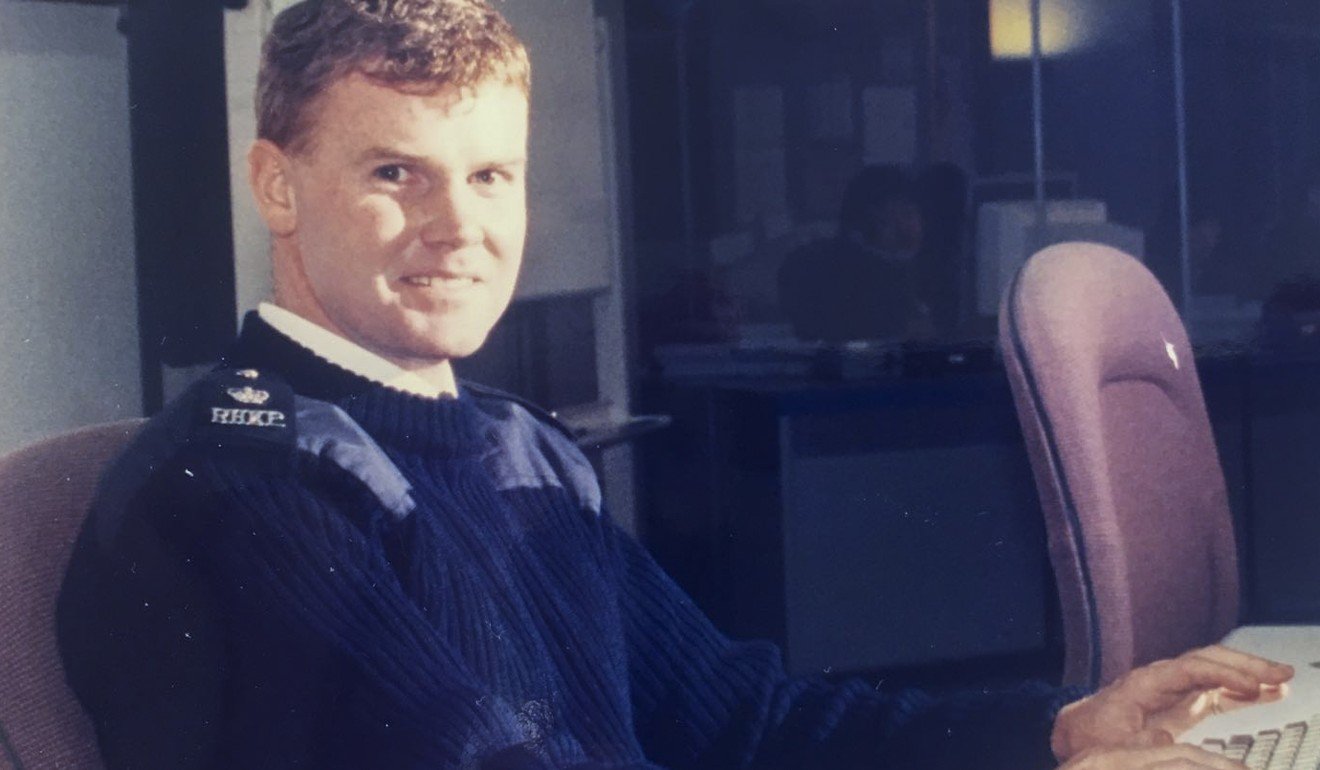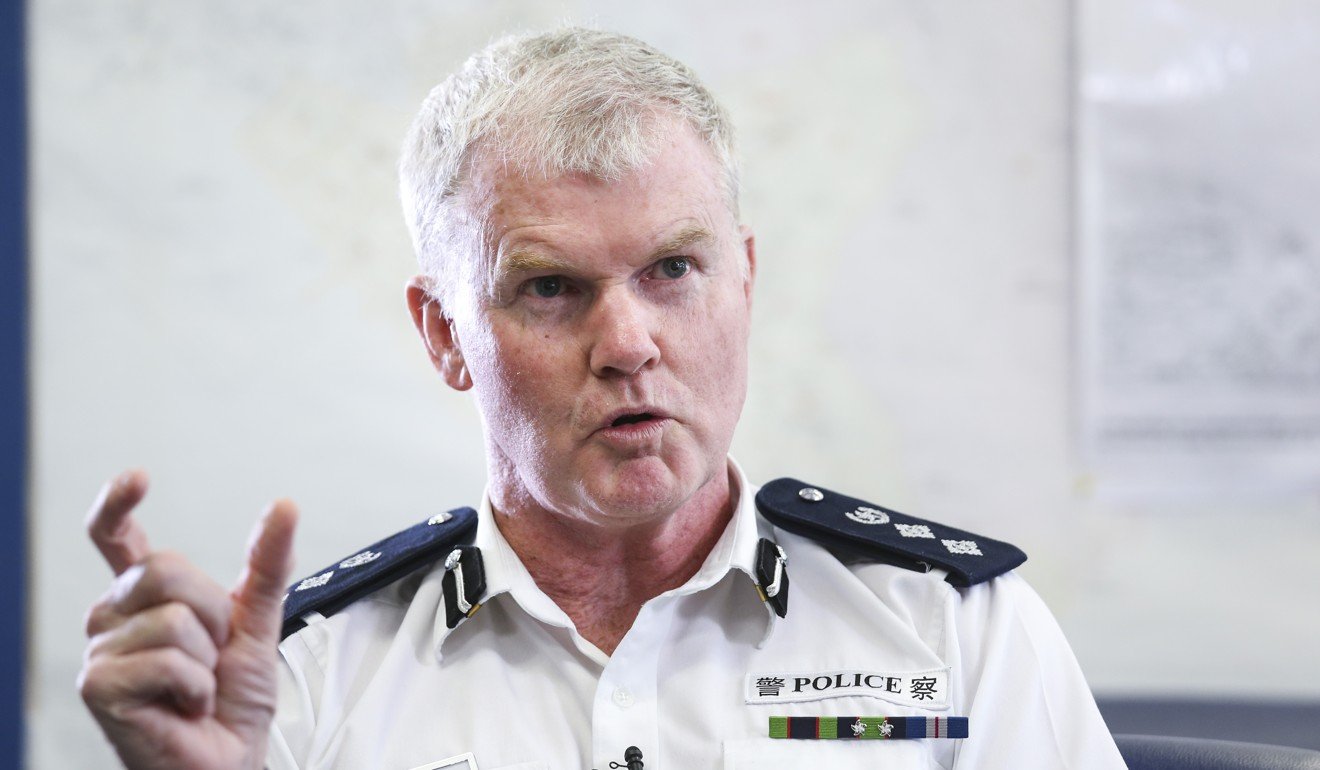
‘At midnight I took off my Royal Hong Kong Police badge and got on with fighting crime’
Chief Superintendent Barry Smith recalls a seamless transition of authority on June 30, 1997
When Hong Kong changed from a British colony to a Chinese special administrative region 20 years ago, those living in the city witnessed the significant moment from different locations, on different jobs and with different feelings. All the little things they experienced, from a hug with Chinese officials to a change in police badges, will be remembered as parts of the city’s history.
At midnight on June 30, 1997, Hong Kong police officers made a small but significant change to their uniforms.
They removed their silver Royal Hong Kong Police badges, which featured opium boats in Victoria Harbour, and attached shiny new insignia, complete with Chinese characters and the Hong Kong city skyline.

“But then it was all about the work.”
British-born Smith, 55, arrived in Hong Kong in 1983 as an eager 21-year-old. By the time of the handover he was in charge of the special duties unit known as the Flying Tigers, the team that would respond to a terrorist attack.
While his officers were out protecting over 50 government or state VIPs on June 30, 1997, Smith was in the air-conditioned command centre, manning computers and telephones and making sure everything went smoothly.

The police had spent a year preparing for that one night, Smith recalled.
“I was so busy, and we were all so busy, that the whole thing was just a blur of doing things. Phone calls, arranging things, deploying things, so there was no real time to think.
“It was no dramatic change to how we did things or to the structure or the way people lived their lives. It was just another day. And somewhere above me, up in the clouds, there’d been a change of government.
“But in terms of me, and what I do, I was still working for the Hong Kong government, for the Hong Kong people and that didn’t change,” he said.
“As memory serves, it didn’t seem to be such a big deal. It was just a fairly seamless transition from one government to the next. There was still crime being committed and incidents to respond to and a job to be done, so we just got on with it.”
While it was “business as usual” for Smith, he acknowledged a range of feelings raged on outside.
“There would have been two sides of the coin. People maybe a little bit unsure or upset, and people just saying, right, this is gonna happen. Let’s just go wild and enjoy it.”

A local Chinese officer stood to attention as it played, and everyone followed his lead.
“Some of the expats in the room looked a bit almost guilty that we hadn’t done that first,” Smith recalled. “The way he jumped up immediately, I thought, was quite touching.”
At the end of his shift, Smith felt a “huge sense of relief” that nothing had gone wrong. It was only a few days afterwards that he could party the same way other expats did on the night of the handover.
The early nineties were a time of immense violence ... All to do with squeezing Hong Kong before the handover
Smith was supposed to retire last year but delayed it so he could help with security for the 20th anniversary celebrations – an even more demanding task than the 1997 event.
When he reflects on over three decades of service, Smith says his early years in the Flying Tigers were a time of intense violence. The past two decades since the handover had been marked instead by an increase in the number of protests and demonstrations.
“There was a famous expression – ‘it was the best of times, the worst of times’. The early nineties were a time of immense violence in Hong Kong. There were armed shoot-outs almost weekly, levels of violence which we’d never seen before. All to do with squeezing Hong Kong before the handover.
“Dreadful for Hong Kong, but if you were a unit like I was in, it was great because we were being called out all the time to go and arrest heavily armed criminals. And it was all very exciting for us.”

